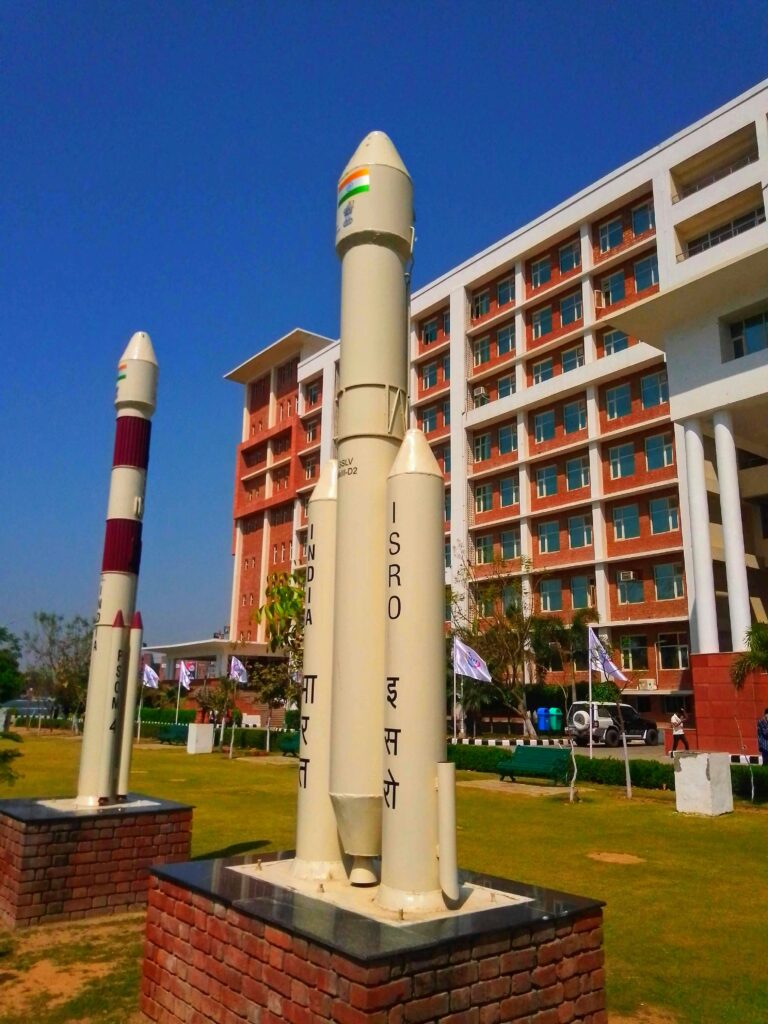ISRO Day is more than just a celebration of a space agency; it is a celebration of India’s scientific achievements and aspirations. It is a day to acknowledge the hard work and dedication of the scientists, engineers, and technicians who have turned ISRO into a globally respected institution. ISRO Day also serves as an inspiration for young minds to explore careers in science and technology.

ISRO was established on August 15, 1969, under the visionary leadership of Dr. Vikram Sarabhai, often hailed as the father of the Indian space program. Sarabhai believed that space technology could be used for the benefit of common people, and his vision laid the groundwork for ISRO’s future endeavors. ISRO was formed from its predecessor, INCOSPAR (Indian National Committee for Space Research), which was created in 1962.
Milestones in ISRO’s Journey :-
Aryabhata (1975) :- ISRO’s first satellite, Aryabhata, was launched on April 19, 1975. Named after the ancient Indian mathematician and astronomer, this satellite marked India’s entry into the space age.
Rohini Satellite (1980) :- India’s first satellite to be placed in orbit by an Indian-made launch vehicle, SLV-3, was launched on July 18, 1980, showcasing India’s ability to develop indigenous space technology.
Chandrayaan-1 (2008) :- India’s first lunar mission, Chandrayaan-1, not only discovered water on the moon but also put ISRO on the global map as a serious player in space exploration.
Mangalyaan (2013) :- The Mars Orbiter Mission (MOM), also known as Mangalyaan, made India the first country to reach Mars orbit on its first attempt. It was a feat accomplished with one of the most cost-effective interplanetary missions ever.
Chandrayaan 3’s Triumph :- In August 2023, India made history when Chandrayaan 3 successfully landed near the Moon’s south pole, becoming the first country to do so. This achievement solidified India’s position as a major player in lunar exploration.
Satellite Network :- ISRO operates a vast network of satellites for various purposes, including communication, remote sensing, navigation, and meteorology. These satellites play a crucial role in providing essential services to the nation.
Indigenous Technology :- ISRO has developed a strong foundation in indigenous technology, from rocket propulsion systems to satellite payloads. This self-reliance has enabled India to achieve significant advancements in space exploration without relying heavily on foreign assistance.
Amazing and Interesting Facts About ISRO .
Budget Efficiency :- ISRO is renowned for its cost-effective missions. The budget for the Mars Orbiter Mission (Mangalyaan) was approximately $74 million, less than the budget of many Hollywood movies, earning it the nickname “India’s frugal space program.
PSLV’s Success Streak :- The Polar Satellite Launch Vehicle (PSLV) has been one of ISRO’s most reliable launch vehicles, with over 50 successful missions. It earned global recognition in 2017 when it set a world record by launching 104 satellites in a single mission.
International Collaboration :- ISRO has launched satellites for over 30 countries, making it a key player in global space collaboration. This includes missions for countries like the USA, Germany, and the UK.
Antrix Corporation :- ISRO’s commercial arm, Antrix Corporation, plays a vital role in global space commerce by offering launch services, satellite transponders, and more to international clients, contributing significantly to India’s economy.
ISRO Day is a celebration of India’s relentless pursuit of scientific excellence and its remarkable achievements in space technology. From the humble beginnings of launching small rockets from a church in Thumba to reaching the farthest corners of the solar system, ISRO’s journey is nothing short of extraordinary. As we celebrate ISRO Day, we honor the spirit of innovation and determination that continues to propel India to new heights in space exploration.

helo how